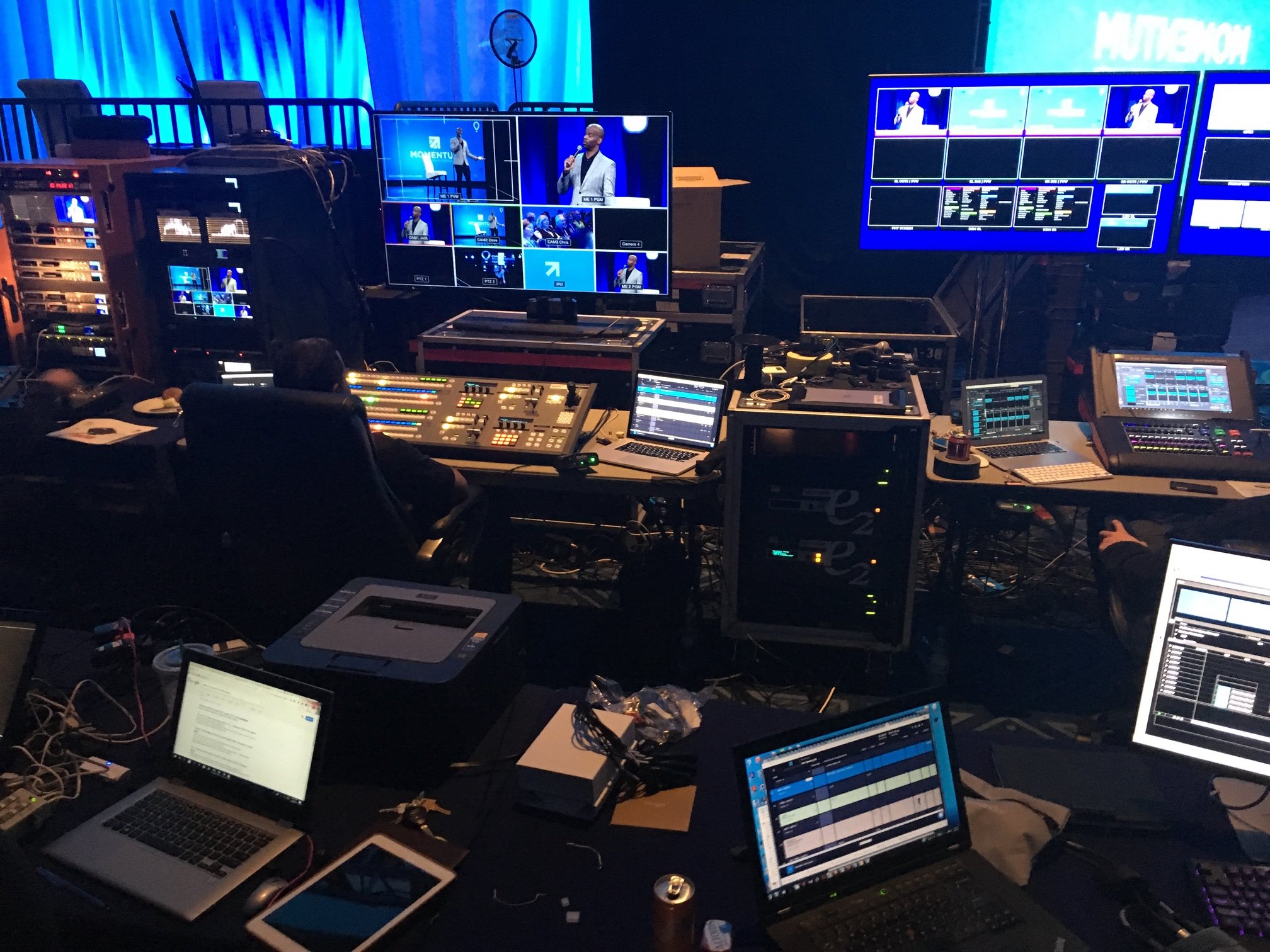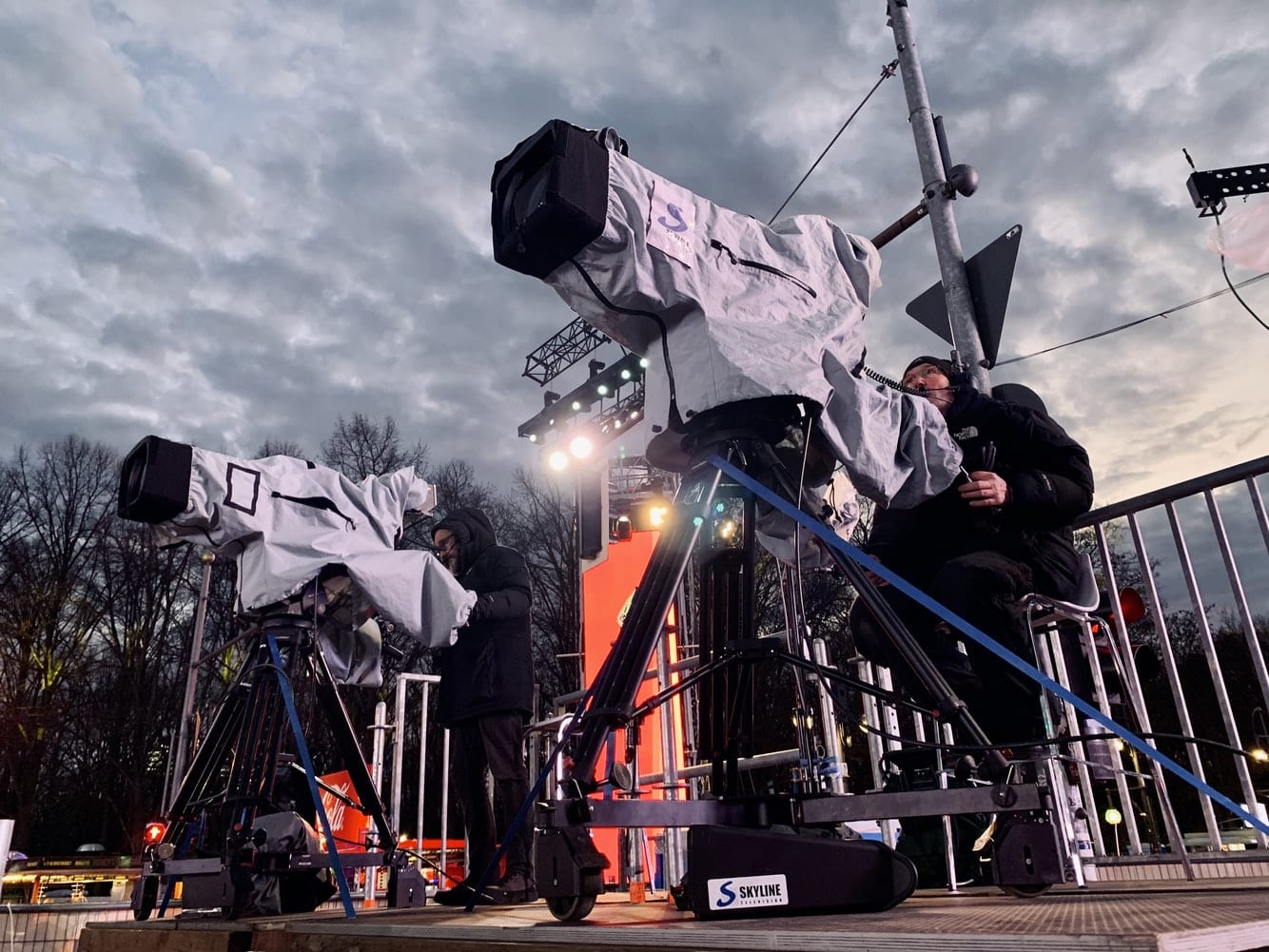How event production charlotte can elevate internal company events
Just How Event Production Functions: A Comprehensive Consider the Refine
Event production is a facility and organized procedure that calls for cautious preparation and execution. It starts with developing clear purposes and comprehending the target audience. Each step, from budgeting to place choice, plays an essential duty in making certain success. As the procedure unravels, numerous aspects need to align perfectly. The nuances of this intricate procedure commonly go unnoticed. What are the key phases that add to a memorable event?

The Initial Drawing Board
When beginning on event production, careful planning is vital to assure a successful outcome. The preliminary drawing board offers as the foundation for all subsequent efforts. During this stage, event producers should define the event's function and purposes plainly. Recognizing the target market assists tailor the experience and messaging, guaranteeing significance and engagement.Producers need to additionally consider the event format, whether it be in-person, virtual, or hybrid, as this will influence different logistical elements. Picking a suitable date and venue is crucial, as it impacts ease of access and availability.Furthermore, constructing a dependable team is basic for splitting responsibilities and simplifying interaction. Establishing a timeline with landmarks assurances all tasks are finished on time. This phase involves comprehensive research, consisting of identifying possible difficulties and developing strategies to minimize threats. Eventually, a well-structured initial preparation phase establishes the tone for a successful event production trip.

Budgeting and Source Allowance
In event production, effective budgeting and source allotment are crucial for success - event production charlotte. Developing financial criteria sets the foundation for all succeeding choices, while source circulation methods guarantee that every part of the event is adequately supported. With each other, these aspects help maintain control over expenditures and maximize the use of offered sources
Establishing Financial Parameters
Developing financial specifications is vital to the success of any type of event production, as it establishes the foundation for efficient budgeting and source allotment. This procedure starts with defining the general spending plan, which encompasses all elements of the event, consisting of place expenses, catering, and advertising. By recognizing available funds, event coordinators can focus on expenses and allot resources appropriately. Furthermore, it is vital to conduct complete market research study to anticipate possible prices and identify funding resources, such as sponsorships or ticket sales. Developing clear financial criteria additionally aids in risk management, enabling coordinators to reserve backup funds for unanticipated expenditures. Inevitably, a distinct spending plan works as a roadmap, leading the event production team in the direction of accomplishing their objectives while preserving monetary control.
Resource Distribution Methods
Efficient source circulation methods are crucial for taking full advantage of the effect of an event while adhering to spending plan restraints. Effective event production calls for a meticulous method to budgeting and source allotment. Planners need to prioritize vital components such as location, food catering, and innovation, guaranteeing that funds are allocated to locations that improve guest experience. A detailed spending plan needs to lay out expected expenses and recognize areas for potential price savings, such as negotiating with suppliers or checking out sponsorship opportunities. In addition, tracking expenditures throughout the planning procedure helps protect against overspending. By utilizing strategic source distribution, event producers can deliver a remarkable experience while preserving monetary obligation, inevitably contributing to the overall success of the event.
Venue Option and Logistics
Selecting the appropriate location is necessary to the success of any kind of event, as it sets the phase for the overall experience. Place selection entails assessing numerous elements, consisting of capacity, availability, and area. Coordinators have to think about the target market and the nature of the event, guaranteeing the location lines up with the event's goals.Logistics play a substantial role in this procedure, entailing arrangements for seats, audiovisual equipment, and providing services. An appropriate location should assist in smooth flow for attendees and team, enhancing engagement.Additionally, evaluating possible locations for amenities like vehicle parking, toilets, and fire escape is necessary for safety and benefit. The timeline for safeguarding the location is additionally critical, as popular areas may reserve quickly - event production charlotte. Comprehensive planning and prompt implementation can ultimately contribute to a smooth event experience, making venue option and logistics basic elements of successful event production.
Creative Concept Development
While the location sets the physical stage, creative idea advancement shapes the event's identification and story. This procedure starts with recognizing the event's objective and target market, permitting event manufacturers to develop an engaging motif that reverberates with attendees. Conceptualizing sessions usually include varied perspectives, cultivating cutting-edge ideas that align with the event's goals.Once a theme is established, visual components such as color combinations, signage, and design are made to improve the overall atmosphere. Storytelling techniques may additionally be integrated to develop an interesting trip for individuals, assuring an unforgettable experience. Furthermore, factors to consider regarding enjoyment, activities, and interactive elements are straightened with the picked concept, strengthening the style throughout the event.Ultimately, efficient creative concept growth guarantees that every facet of the event functions cohesively, leaving a lasting impact on attendees and satisfying the event's objectives. This fundamental work prepares for succeeding planning and implementation stages.
Collaborating With Suppliers and Suppliers
Effective event production depends upon efficient collaboration with suppliers and distributors. Choosing reliable partners, bargaining contracts successfully, and ensuring prompt deliveries are critical steps in this process. Each of these aspects adds significantly to the general success and smooth execution of an event.
Choosing Reliable Allies
Exactly how can event planners guarantee a smooth production experience? Picking trustworthy partners is important in achieving this goal. Event planners should carry out comprehensive research to recognize suppliers and providers with a tried and tested track record of quality. This includes examining recommendations, assessing profiles, and assessing client feedback. Organizers must focus on partners who show professionalism and trust, prompt communication, and a readiness to work together. Structure strong partnerships fosters count on and makes it possible for quick analytic throughout the event. In addition, it is beneficial to select local suppliers who recognize the venue and local logistics. Inevitably, an effective event pivots on the synergy between coordinators and their companions, guaranteeing that every aspect of production runs smoothly and efficiently.
Discussing Contracts Effectively
Reliable settlement of contracts is an essential action in the partnership in between event planners and their suppliers and distributors. This process entails clear communication of assumptions, deliverables, and timelines. Planners should carry out detailed research study on market rates and industry requirements to develop a standard for negotiations. It is necessary to produce a joint environment, motivating open dialogue about terms, pricing, and potential contingencies. Organizers ought to also focus on comprehending the supplier's abilities and constraints to straighten their requirements effectively. Versatility can bring about mutually valuable agreements, cultivating long-term relationships. Crafting distinct agreements that include certain efficiency metrics can aid assure liability, eventually leading to effective event execution and satisfaction for all events entailed.
Ensuring Prompt Distributions
Prompt deliveries are vital for the smooth execution of any type of event, needing attentive collaboration in between organizers and their suppliers and vendors. Efficient communication is important, as it aids establish clear assumptions relating to delivery routines, amounts, and particular requirements. Coordinators typically create comprehensive timelines to lay out vital turning points, making sure all events remain straightened throughout the procedure. Routine check-ins with suppliers can assist identify possible hold-ups early, permitting proactive services. In click here to read addition, building solid relationships with reliable suppliers cultivates trust fund and accountability, which can lead to far better solution and prioritization. By focusing on these collective initiatives, planners can minimize interruptions, therefore improving the total performance of event production and ensuring that all required materials and services arrive as intended.
Marketing and Promotion Strategies
While organizing an event, the success of advertising and marketing and promotion methods can significantly influence attendance and involvement. Efficient methods often include a combination of electronic advertising and marketing, standard advertising, and grassroots outreach. Using social media systems permits real-time communication and targeted marketing, getting to details demographics efficiently. Email advertising campaigns can even more involve potential guests with tailored web content and reminders.Collaborations with influencers or sector leaders can likewise boost credibility and expand reach. Producing engaging content, such as video clips or blog sites, assists to produce buzz and receive interest leading up to the event. In addition, leveraging early-bird discount rates and unique perks can incentivize ticket purchases.Promoting via standard channels, such as posters or local media, stays pertinent, specifically in community-focused occasions. A complete strategy that integrates several approaches warranties optimum presence and involvement, ultimately contributing to the event's success and the creation of a memorable experience for attendees.
On-Site Implementation and Monitoring
On-site execution and management are crucial components that identify the general success of an occasion. Reliable control throughout the event guarantees that all my response components line up with the planned agenda. Event supervisors look after logistics, consisting of supplier control, equipment arrangement, and visitor solutions. Keeping track of timelines and resolving any type of unexpected concerns are basic for keeping a smooth experience.The team plays a significant role, as skilled employees are responsible for numerous tasks such as registration, info circulation, and technological support. Communication amongst staff member is vital; it fosters a joint setting and allows fast resolution of challenges.Additionally, safety and security procedures should be followed, guarding the wellness of all participants. Post-event evaluations are also component of on-site monitoring, giving understandings for future improvements. By concentrating on these facets, event manufacturers can create unforgettable experiences that meet or surpass attendee expectations while attaining the event's purposes.
Regularly Asked Questions
How Do I Select the Right Event Theme?
Choosing the right event motif includes thinking about the target audience, event function, and location. Investigating present fads and collecting input from stakeholders can likewise motivate creative concepts that reverberate and develop a remarkable experience.

What Are Common Mistakes in Event Production?
Common mistakes in event production commonly consist of poor planning, poor interaction among employee, spending plan mismanagement, ignoring to consider the audience's demands, and stopping working to conduct a complete post-event examination for future enhancements.
Exactly How Can I Determine Event Success?
To measure event success, one can evaluate attendee contentment, engagement levels, budget adherence, and post-event feedback. discover this Key performance signs, such as ticket sales and social networks communications, likewise give beneficial understandings into total efficiency.
What Should I Do if It Moistens the Event Day?
In case of moisten the day, the organizer ought to implement contingency strategies, such as securing tents or moving tasks inside. Interaction with attendees concerning adjustments is necessary to guarantee a smooth experience regardless of weather condition difficulties.
Exactly How Can I Guarantee Attendee Involvement Throughout the Event?
